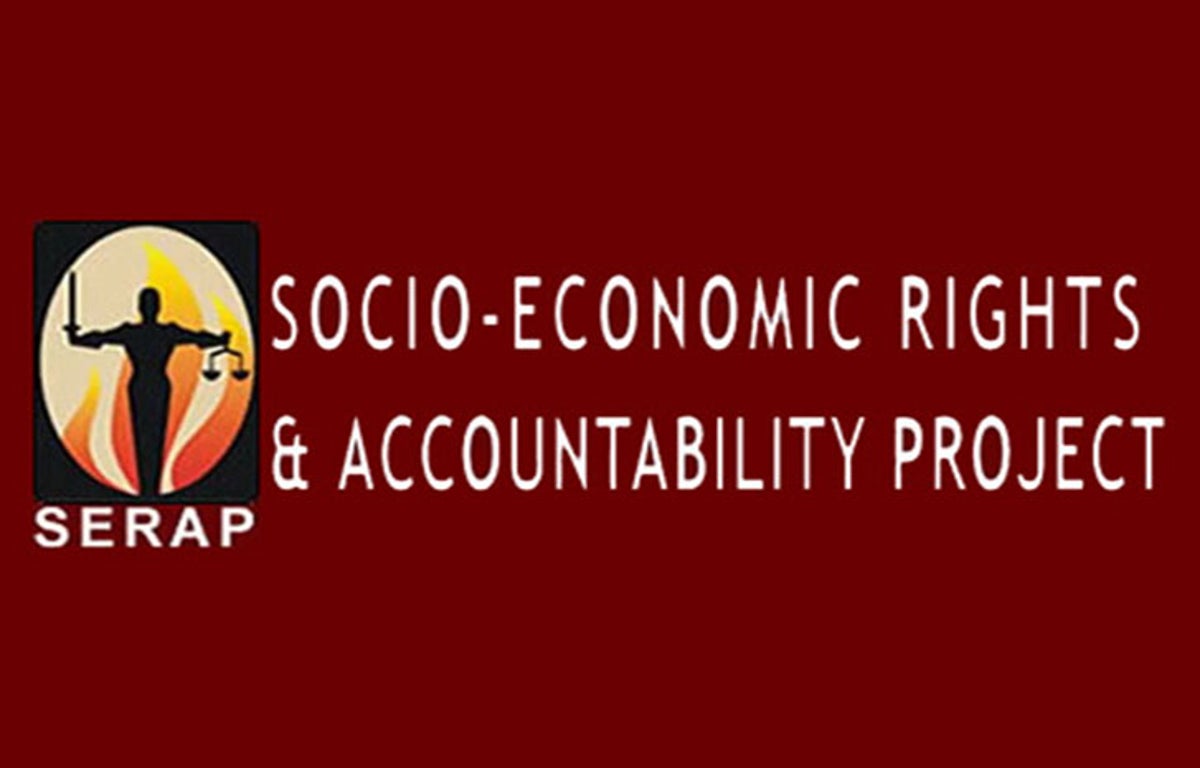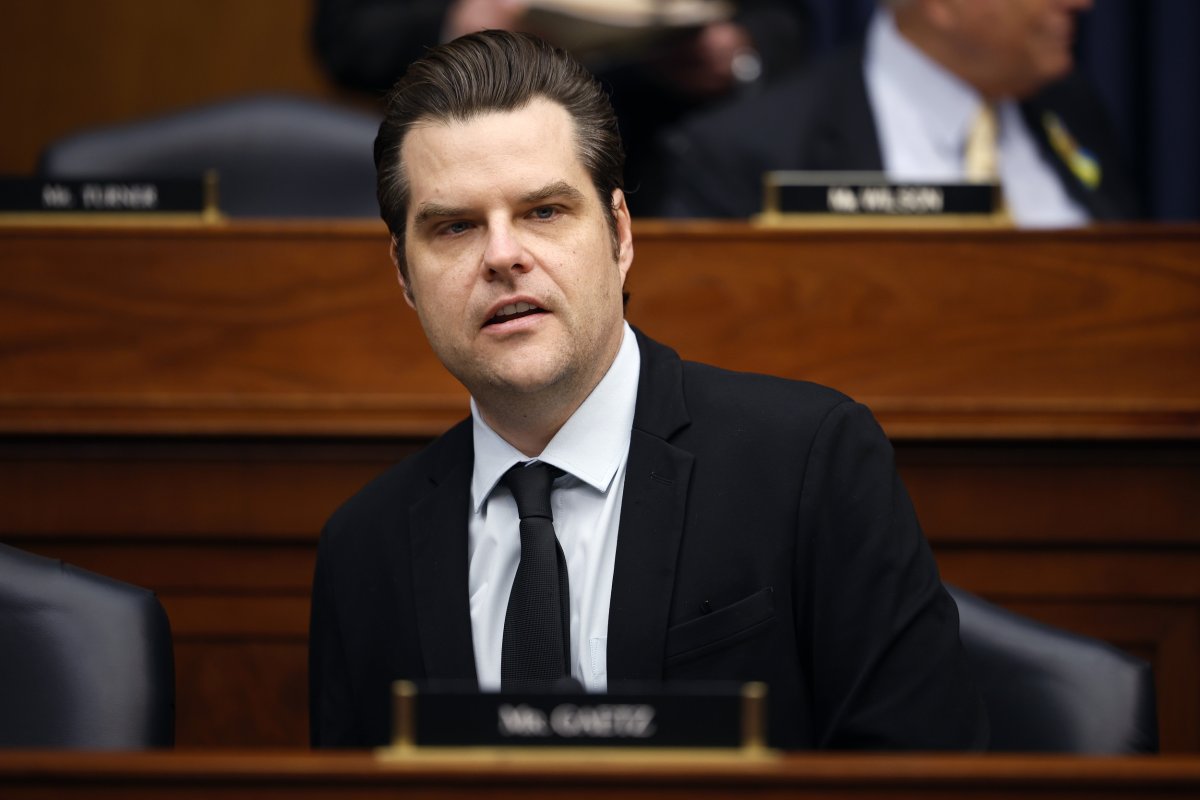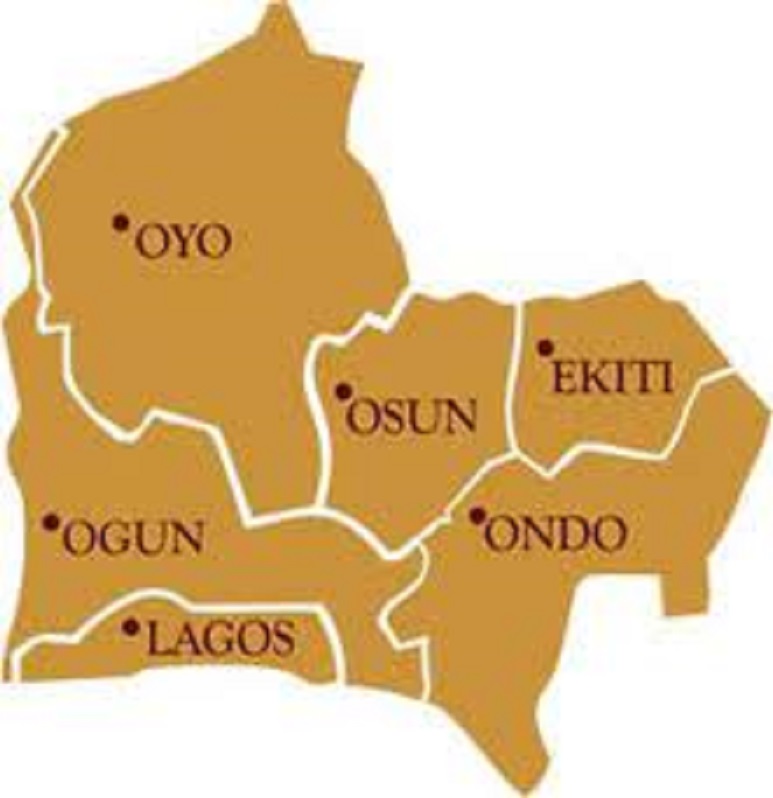Politics
SERAP Urges Govs, Wike To Show Details Of Chinese Loans

The Socio-Economic Rights and Accountability Project (SERAP) has urged Nigeria’s 36 state governors and the Minister of the Federal Capital Territory (FCT), Abuja, Nyesom Wike to make public details of Chinese loans, liabilities, and other external borrowing obtained.
The demand, according to letters to the parties, covers loans by the sub-nationals, guaranteed by the Federal Government and the SERAP also wants to know the terms and conditions for any such borrowing including the provisions on collateral, according to a statement.
ALSO READ: SERAP Threatens Akpabio, Abbas With Legal Action Over Legislators’ Jumbo Pay
The SERAP urged them to “provide details of the repayment obligations regarding any Chinese loans, liabilities and other external borrowing obtained and guaranteed by the Federal Government, the interest rates on the loans, and any defaults, debt restructurings, and debt exposure to China and other creditors.”
In addition, the SERAP also urged them to “clarify any investment agreements with Chinese companies and repayment histories of any loans, liabilities and facilities obtained from China and other external creditors and guaranteed by the Federal Government.”
In the letters, signed by its deputy director Kolawole Oluwadare, the SERAP wrote, “We are concerned that your state and the FCT may have failed to efficiently manage your debt obligations, especially your external debt and investment obligations, as guaranteed by the Federal Government.
“The failure to uphold your obligations is contrary to Section 6 of the Debt Management Office Establishment (Etc), Act, and creates financial risks and other exposure to Nigeria with respect to these Chinese loans, liabilities and other external borrowing.
“These Chinese loans, liabilities and other external borrowing by your state and the FCT may not have been used for the purposes for which they have been obtained and terms and conditions guaranteed by the Federal Government.”
The SERAP declared that, the “SERAP is concerned that there is a significant risk of defaults of the Chinese loans, liabilities, and other external borrowing by your state and the FCT, which are guaranteed by the Federal Government.
“There are also significant risks of confiscation of Nigerian assets in foreign jurisdictions by multilateral and bilateral agencies and other creditors in cases of failure by your state and the FCT to satisfactorily observe and fulfil the terms and conditions of the Chinese loans, liabilities and other external borrowing which are guaranteed by the Federal Government.
“The apparent inadequacy of safeguards and accountability mechanisms for these Chinese loans, liabilities and other external borrowing may also expose Nigeria’s assets in foreign jurisdictions to confiscation.
“Your state and the FCT have a shared obligation to ensure that the spending and repayment plans of Chinese loans, liabilities, facilities and other external borrowing are consistent with the provisions of national and international standards, and to prevent or mitigate risks of confiscation of Nigerian assets abroad.
“We would be grateful if the recommended measures are taken within 7 days of the receipt and/or publication of this letter. If we have not heard from you by then, SERAP shall consider appropriate legal actions to compel your government and the FCT to comply with our request in the public interest.
“Despite several external loans, liabilities, investment obligations and external borrowing obtained by your state and the FCT, which are guaranteed by the Federal Government over many years, millions of Nigerians in your state and the FCT continue to lack access to regular electricity supply and have been denied the benefit of renewable energy solutions.
“A recent report by the National Bureau of Statistics (NBS) revealed that over 133 million Nigerians are living in different categories of poverty, the majority of them women and children.
“SERAP is seriously concerned that many of the country’s 36 states and FCT are allegedly mismanaging public funds which may include Chinese loans, liabilities and other external borrowing obtained from bilateral and multilateral institutions and agencies and guaranteed by the Federal Government.
“We urge you to disclose the spending details of these Chinese loans, investment obligations and external borrowing, including details of and locations of projects as well as the implementation status and completion reports, if any, on the projects.
“According to Nigeria’s Debt Management Office, the total external debt for Ogun State is N168,833,006.66 as at December 31, 2023. The total public debt portfolio for the country’s 36 states and the Federal Capital Territory is N9.17 trillion.
“Nigeria’s total public debt stock, including external and domestic debts, increased by ₦24.33 trillion in three months alone, from ₦97.34 trillion ($108.23 billion) in December 2023 to ₦121.67 trillion ($91.46 billion) as of March 31, 2024. The debt represents external and domestic loans obtained by the Federal Government, the 36 state governments and the FCT.
“SERAP notes that the World Bank has approved several loans and other funding facilities to the country’s 36 states including the recent $750 million credit line meant to the states to carry out reforms to attract investment and create jobs.
“The World Bank on 15 December 2020 approved a $1.5 billion loan for Nigeria’s 36 states and the FCT for social protection and strengthened state-level COVID-19 response. The loan aims to help the states build a resilient recovery post-COVID19 and to reduce poverty.
“SERAP is concerned that the Chinese loans and other external borrowing obtained by your state and guaranteed by the Federal Government are vulnerable to corruption and mismanagement.
“Publishing details of the Chinese loans, liabilities, investment obligations and other external borrowing obtained by your state and the FCT which are guaranteed by the Federal Government would allow Nigerians to scrutinise them.
“Section 39(1) of the Nigerian Constitution 1999 [as amended], section 44 of the Fiscal Responsibility Act and article 9 of the African Charter on Human and Peoples’ Rights to which Nigeria is a state party impose legal obligations on your state and the FCT to disclose the details sought.
“Section 41 of the Fiscal Responsibility Act provides: ‘1) The framework for debt management during the financial year shall be based on the following rules: a. Government at all tiers shall only borrow for capital expenditure and human development, provided that, such borrowing shall be on concessional terms with low interest rate and with a reasonable long amortization period subject.’
“Section 44 of the Fiscal Responsibility Act provides: ‘1) Any Government in the Federation or its agencies and corporations desirous of borrowing shall, specify the purpose for which the borrowing is intended and present a cost-benefit analysis, detailing the economic and social benefits of the purpose to which the intended borrowing is to be applied.’
“According to section 21(1)(2) of the Debt Management Office Establishment (Etc), Act, ‘No external loan shall be approved or obtained by the Minister unless its terms and conditions shall have been laid before the National Assembly and approved by, its resolution. (2) The Federal and State Government or any of their agencies shall not obtain any external loan except with a guarantee issued by the Minister.’”
Politics
Gaetz Withdraws From Trumps Cabinet Nomination

Following his observations that ‘the momentum was strong’ Matt Gaetz whom 47th POTUS elect, Donald Trump nominated for Attorney General has withdrawn.
Biztellers reports that this follows his meeting with Senate and the feedback, which included two women, represented by their attorneys, who accused him of having paid for sex.
Consequently, Gaetz placed on record his full commitment to seeing “that Donald J. Trump is the most successful President in history.”
His withdrawal according his statement on micro-blogging site, X, was based on his conviction that “There is no time to waste on a needlessly protracted Washington scuffle”.
ALSO READ: Trump Taps 27-Year-Old Karoline Leavitt As New White House Spokesperson
In is view, “Trump’s DOJ must be in place and ready on Day 1”.
Gaetz wrote, “I had excellent meetings with Senators yesterday. I appreciate their thoughtful feedback – and the incredible support of so many. While the momentum was strong, it is clear that my confirmation was unfairly becoming a distraction to the critical work of the Trump/Vance Transition. There is no time to waste on a needlessly protracted Washington scuffle, thus I’ll be withdrawing my name from consideration to serve as Attorney General. Trump’s DOJ must be in place and ready on Day 1.
“I remain fully committed to see that Donald J. Trump is the most successful President in history. I will forever be honored that President Trump nominated me to lead the Department of Justice and I’m certain he will Save America.”
His backers have promptly encouraged to take his seat in the House of Representatives, having been elected to the house under the flag of the Republicans to represent Florida.
Politics
Adeleke Represents SW On Ad Hoc Committee on Nat’l Electrification Plan

The Executive Governors from Nigeria’s South West have unanimously nominated Senator Ademola Adeleke as the chairman of the zone on the National Economic Council (NEC).
Adeleke is the Executive Governor of Osun State, southwest, Nigeria.
This, according to the Spokesperson to Governor Adeleke, Olawale Rasheed, transpired on Thursday, at a meeting of the NEC.
ALSO READ: Adeleke Flaunts Local Content Records, Industrialisation Progress
He noted that the meeting reviewed the state of Nigeria’s electricity sector and resolved to engage subnational structures to address current challenges in the sector.
“The meeting particularly sought to build on the devolution of the electricity sector and its movement into the concurrent legislative list which empowers state governments to regulate the sector in their respective areas,” he stated.
Consequently, the NEC, therefore set up an ad hoc committee to review actions in the sector by state governments and explore ways to ramp up activities through coordination, Rasheed highlighted.
The full list of members of NEC’s Ad-hoc Committee on National Electrification:
- Governor of Cross Rivers State, Bassey Out – Chairman, South-South
- Governor of Katsina State, Mallam Dikko Umaru Radda – Chairman, North-West
- Governor of Gombe State, Muhammadu Inuwa Yahaya – Chairman, North-East
- Governor of Osun State, Senator Ademola Adeleke – Chairman, South-West
- Governor of Imo State, Senator Hope Uzodinma – Chairman, South-East
- Governor of Plateau State, Barr. Caleb Mutfwang – Chairman, North-Central
- Hon. Minister of Finance, Wale Edun
- Hon. Minister of Budget and National Planning, Atiku Bagudu
- Special Adviser, NEC and Climate Change, Rukaiya El-Rufai
- Special Adviser, Power Minister, Hon. Bolaji Tunji
- MD/CEO Rural Electrification Agency, Abba Aliyu
- MD/CEO Niger Delta Power Holding Company, Jennifer Adighije
- Chairman, Nigeria Governors Forum, AbdulRahman AbdulRazak
- NEC Secretariat
Politics
ACF Pledges Support For Northern Presidential Candidates Ahead Of 2027 Elections
The Arewa Consultative Forum (ACF) has announced its decision to back Northern candidates in the 2027 general elections, citing the urgent need to address the worsening socio-economic and security challenges facing the region.
In a communique issued after its National Executive Council meeting in Kaduna on Wednesday, the forum expressed deep concern over the economic state of Northern Nigeria under President Bola Ahmed Tinubu’s administration, attributing the region’s struggles to flawed governance and poor policy decisions.
READ MORE: JUST IN: FG Dissolves Nnamdi Azikiwe University Governing Council, Removes VC
The ACF criticized the Federal Government’s economic policies, describing them as detrimental to the livelihoods of Northern citizens.
According to the communique, signed by the forum’s National Publicity Secretary, Professor Tukur Muhammad-Baba, the policies have compounded the already dire economic conditions in the region.
The statement reads, “Arewa people remain at a great disadvantage, being already worse off economically compared to other parts of Nigeria. While economic reforms are indeed desirable, they should not impoverish the same people they are meant to serve. Policies must have a human face.”
The forum noted that the North faces chronic food insecurity, limited educational and vocational opportunities for youth, and a heavy reliance on small-scale economic activities.
“Livelihoods are currently dependent on micro activities. The region faces acute and chronic food insecurity; its youths lack education and skills training. Daunting as these may be, they can be reversed. The time to think big is now,” the communique emphasized.
The ACF also addressed the pervasive insecurity in the North, warning that the situation has begun to erode public confidence in the government.
“Security is an irreducible minimum of human existence. In this regard, insecurity in its various manifestations remains the most worrisome challenge of Arewa people, that has even started to corrosively undermine the authority of government,” the forum stated.
It condemned the government’s response to the crisis, arguing that the Federal Government has failed to meet its primary duty of safeguarding lives and property.
“That those whose responsibility it is to provide security will be saying they are doing their best is unacceptable,” the communique said. “The minimum duty of government is to safeguard life and property, and doing anything less is a failure.”
The ACF faulted what it described as the “flawed leadership selection process” under the Tinubu administration, claiming it has elevated individuals without the requisite competence or experience to key positions.
It urged the Federal Government to “review, reassess, reevaluate, and re-order the direction of its economic policies with a view to giving it the needed human face.”
Looking ahead to the next general elections, the ACF pledged its support for Northern politicians who demonstrate a clear commitment to addressing the region’s challenges and fostering national development.
“Notwithstanding the parlous state of Arewa’s glaring economic conditions, the policies of the current Federal Government have continued to make matters much worse,” the communique stated.











